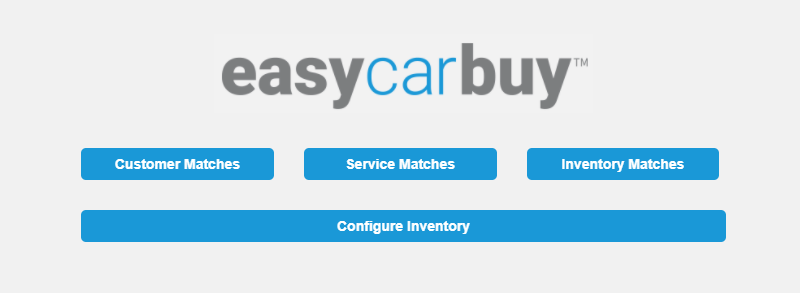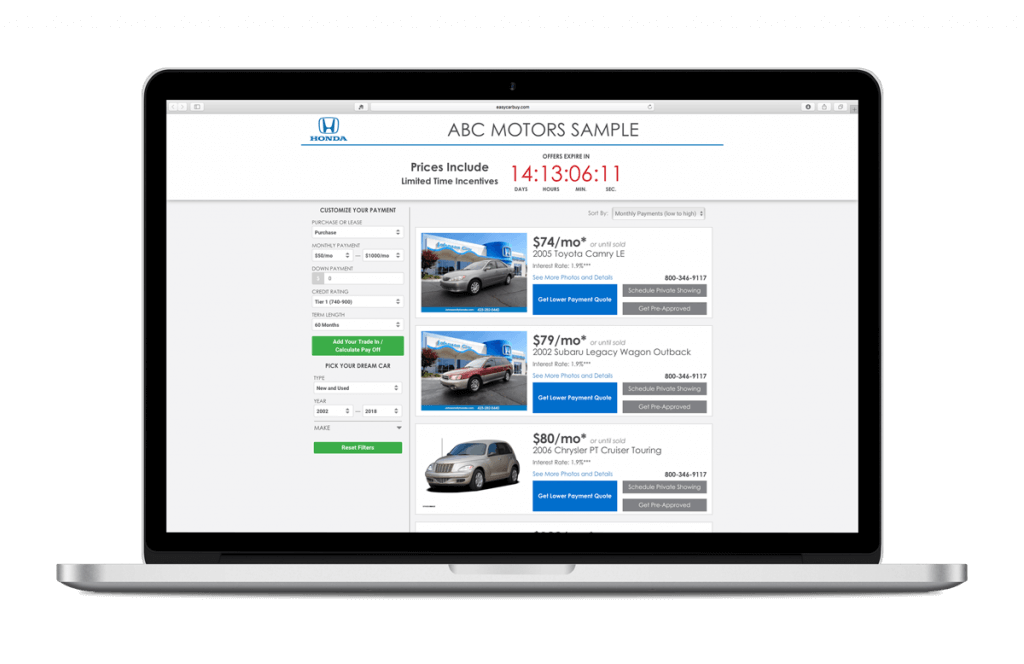Max Zanan, author of Perfect Dealership: Surviving the Digital Disruption, wrote, “The automotive retail industry is under more pressure than ever. Lower margins, stricter regulations, heavy competition, and the rise of online auto sales.”
Zanan shares that, “Unless car dealerships change—and change quickly—they risk falling into the same digital gulf that obliterated the corner video store and travel agencies. The old ways are dead. It’s time to adapt or fade away.”
The same way that your marketing team needs to adapt to changes in the industry and market to boost sales, your sales team must adapt to how they improve their product knowledge.
Understanding Today’s Tech-Savvy Consumer
The Google/Kantar TNS Drive to Decide Survey showed that 92% of vehicle buyers completed online research when deciding which car they wanted to purchase.
According to Think with Google research, 64% of consumers view 360-degree vehicle videos online before visiting a dealership to take a test drive.
Today’s modern consumer is well-versed in features and performance capabilities of various vehicle makes and models due to their diligent research online before they ever step into your dealership showroom.
Your sales team must be ready to communicate effectively with the modern-day car buyer and be prepared for the tough questions about vehicles they are interested in purchasing.
Improving Your Sales Team’s Product Knowledge
The following tips can help your sales team improve their product knowledge and meet the needs of customers who walk through your doors:
Advanced Training Courses
Your sales team has likely completed online training courses or participated in training meetings held by the auto manufacturers for inventory sold at your dealership. The sales team can get educated on vehicle performance capabilities, features, and tips to share with customers.
Arrange for your management and sales teams to attend courses at the National Automobile Dealers Association (NADA), their American Truck Dealers (ATD) division Academy, and take certificate and seminar programs for advanced training.
Your sales team can “explore used-vehicle management, digital marketing and showroom control, and evaluate traditional automotive strategies and analysis in the context of retailing in the internet age.”
They can take these courses to improve their overall understanding of the workings of the dealership and apply that experience to improving product knowledge—and recognizing their important role as sales team members.
Inventory Management Tools
Your dealership is likely using inventory management software to streamline the marketing and sales process. Make sure all sales team members are well-versed in this software so they can improve their product knowledge and meet consumer needs.
If your dealership isn’t currently using such an inventory tool, work with your Digital Marketing Strategist to find the right software to effectively track your inventory and augment product knowledge for your sales team.
The right inventory management tool can provide the following benefits:
- Centralized hub delivering insights on all inventory
- Insights for enhanced forecast capacity
- Improved retailing strategy for increased profitability
- Mobile app capacity to scan VIN from inventory


Inventory management tools can gather accurate information from the original equipment manufacturer (OEM) for use on your website and paid search ad content. Any adjustments made will be automatically updated.
Your sales team can benefit from access to this tool for learning purposes to improve their product knowledge and be better prepared to speak with customers who have likely searched your website prior to visiting the showroom.
Knowledge Management
The way information is created, shared, and utilized in an organization or business is called Knowledge Management (KM). This multifaceted methodology for accomplishing marketing and sales objectives for your dealership can be achieved by effectively managing knowledge by all departments in your dealership.
Your dealership can integrate knowledge management with your CRM software and other business intelligence tools you use, like inventory management software, which are specifically designed to be used in the automotive sales industry.
In-depth product knowledge of your vehicle inventory and the services offered by your service department is an important factor in improving communications between your sales team and customers—and boosting sales for your dealership.
The Harvard Business Review reported research from Dillard’s showing that the sales rate for their sales team increased by 5% for each hour that their team members spent on enhancing their product knowledge.
When your sales team can easily respond to customer inquiries—whether online, on the phone, via SMS, email, or in-person—they increase the chances of more effectively walking the consumer through the purchasing consideration process.
Any objections or questions can be handled when the sales team improves product knowledge. Consider the following ways knowledge management can be used to train your sales team in augmenting product knowledge:
1. Focus on What the Consumer Needs in a Vehicle
Product knowledge is directly related to finding the right solution for the consumer. When your sales team focuses on what consumers need in a vehicle, they can pinpoint features and performance capacity from the right car, SUV, or truck that meets their current needs, budget, and lifestyle.
Train your sales team to use their product knowledge to drive customer solutions rather than simply pushing for a sale. Showing the consumer that you care about meeting their vehicle needs, will enhance their trust in your dealership—and cultivate a longer customer lifecycle.
2. Real-Time Access to Knowledge Management Data
Provide your sales team with necessary access to knowledge management data like sales aids and training modules, which can be accessed on various devices like mobile phones and tablets—providing them with real-time access as needed.
Making it easy for team members to access these training modules and sales aids will increase the likelihood that this knowledge management data is used. Management must keep this KM data updated so the sales team always has real-time access to current information to assist customers during the sales process.
3. Sales Simulations Using Knowledge Management Data
According to the Experiential Learning Cycle developed by David Kolb in 1984, “Learning is the process whereby knowledge is created through the transformation of experience” (Kolb, 1984, p. 28). Kolb hypothesized that there are four stages in the learning cycle:
- Active Experimentation – Creating an action plan for learned information
- Concrete Experience – Acting on learned information
- Reflective Observation – Assessing the concrete experience
- Abstract Conceptualization – Drawing conclusions from the experience
Provide your team members with situations where they can use knowledge management data to improve their product knowledge by role-playing, sales simulations, and gamification.
Through this process, team members can work together to test their knowledge of your inventory and service offers to improve their future interactions with customers.
4. Divide Knowledge Management Data into Micro Groups
Augment the learning process by dividing the knowledge management data into micro-groups to make it easier for team members to improve their product knowledge.
Research completed by German psychologist Hermann Ebbinghaus showed that team members only recall 44% of the information they were taught one hour after the training. To boost sales at your dealership, you need a higher product knowledge retention rate than 44%.
Create e-learning modules that your team members can consume at their own pace to increase the product knowledge retention rate. Work with your digital marketing strategist to review the following free e-learning tools to make sure you create product knowledge modules that resonate with your sales team.
- Use Canva to create infographics, charts, and collages with this basic software for increased team member engagement with information.

- Ardour is a free audio software tool that enables you to record, edit, and mix audio files for your e-learning modules on Mac or PC devices.

- You can turn videos or screenshots into animations with Snagit to integrate into your e-learning modules to capture team members’ attention.

- Create assessments in the modules by using Google Forms or Easy Test Maker to test how well team members are learning product knowledge.

- SmartBuilder is an e-learning authoring tool that enables you to create training modules that improve engagement and responsive output.

5. Merge Marketing KM Data with Sales Team Training
Knowledge management relates to product and service information and customer data from your CRM software.
You can gather a wealth of knowledge management data regarding product information from your marketing team, that can be helpful for your sales team to learn inventory and service offers better.
According to the Harvard Business Review, 87% of the terms used by marketing and sales teams to describe each other are negative.
You can change that mindset in your dealership and help these teams work together to improve product knowledge for your sales team and help increase sales this year.
Help Your Sales Team Improve Their Product Knowledge Today
Get advanced training for your sales team by enrolling them in courses and seminars. Use inventory management tools to track inventory and help team members improve product knowledge.
Contact the professional J&L Marketing team, who is ready to help your sales team improve their product knowledge and boost sales.



